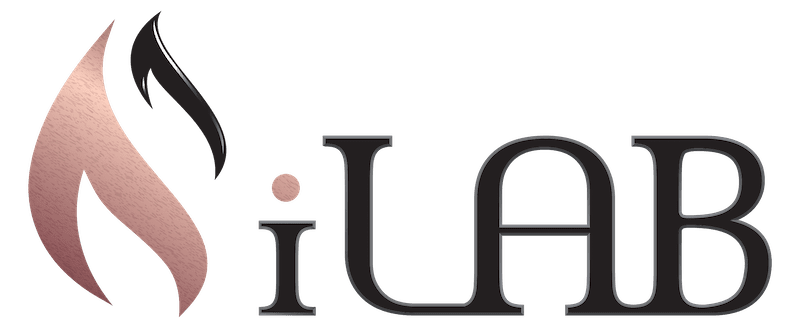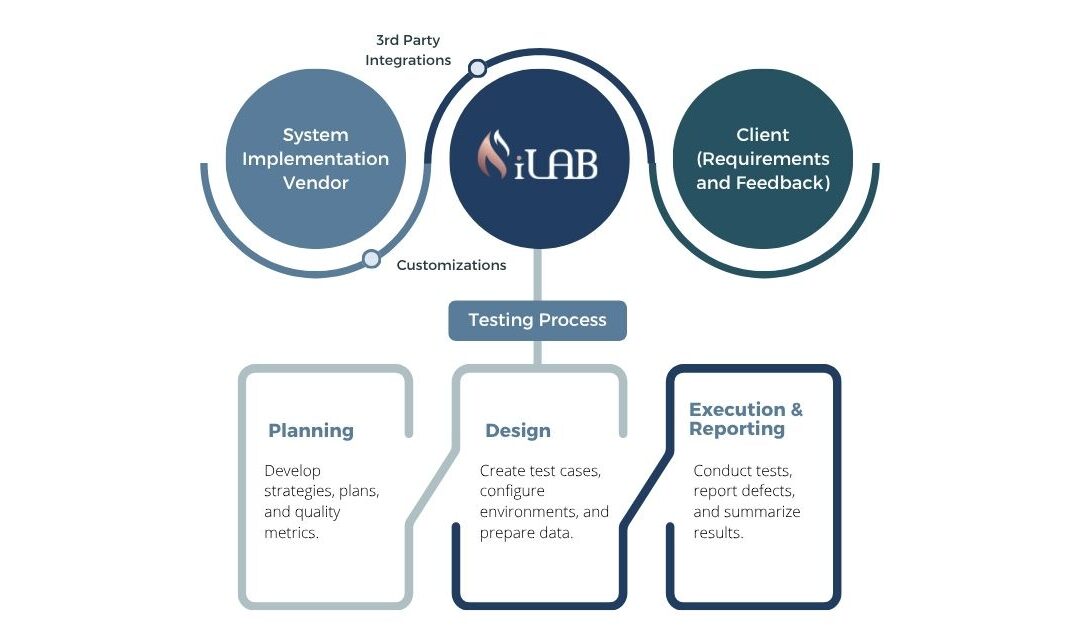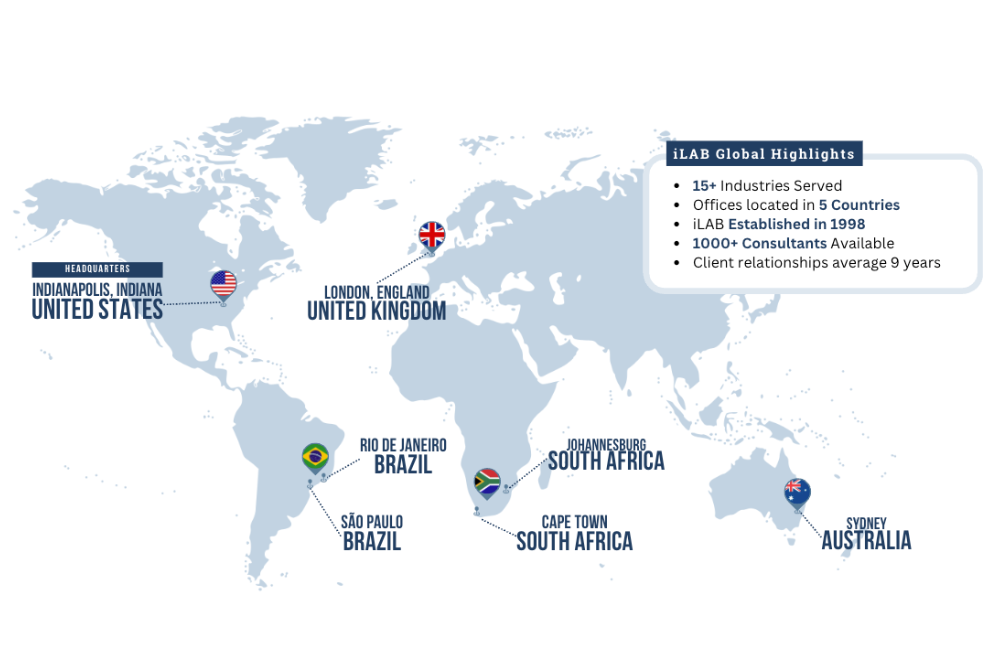Software has become the backbone of every enterprise, from government agencies to healthcare systems and financial institutions. Yet, studies show that nearly 70% of large-scale IT projects face significant delays, budget overruns, or outright failure. The cost of software downtime can reach millions of dollars per hour in certain industries. For example, Gartner estimates the average cost of IT downtime at $5,600 per minute. In such a high-stakes environment, relying solely on internal development and QA teams is risky. This is where independent software testing comes in. Independent QA ensures software is validated by an unbiased third party whose only job is to find defects, ensure compliance, and confirm that systems work as intended before they reach production
What Is Independent Software Testing?
Independent software testing refers to the process of engaging a third-party organization to validate the quality, security, and compliance of software applications. Unlike internal QA teams, independent testers are not part of the development cycle. This allows them to provide unbiased insights and identify defects without the pressure of internal deadlines or conflicts of interest.
Independent testing can take several forms:
• Functional Testing: Verifying core application features and workflows.
• Non-Functional Testing: Performance, load, stress, and scalability assessments.
• Independent Verification and Validation (IV&V): A formalized QA approach often required in government projects.
• Test Automation Audits: Assessing and implementing automation frameworks for long-term ROI.
• Compliance Testing: Ensuring software meets HIPAA, PCI DSS, FedRAMP, GDPR, or industry-specific regulations.
The Business Case for Independent QA
Enterprises invest in independent QA because the stakes of software failure are simply too high. The benefits extend beyond cost savings and risk reduction—they include reputational protection, compliance, and even innovation enablement.
Key benefits include:
- Risk reduction: Independent teams uncover critical defects earlier, lowering defect leakage.
- Cost efficiency: Fixing a defect in production can cost up to 100x more than fixing it during testing.
- Compliance support: Independent QA provides documented evidence for audits and regulations such as HIPAA or FedRAMP.
- Scalability: Enterprises can flex QA resources up or down as project demands change.
- Faster time-to-market: With automation and proven frameworks, independent QA accelerates releases without sacrificing quality.
Industry Use Cases for Independent QA
Different industries face unique risks when it comes to software quality. Independent QA addresses these challenges head-on by tailoring test strategies to the industry environment:
- Public Sector: Government agencies often require IV&V services for modernization projects such as DMV or Medicaid systems. Independent QA ensures compliance with Section 508 accessibility and security standards.
- Healthcare: HIPAA compliance, EHR reliability, and patient safety require rigorous QA. Independent testing ensures no shortcuts are taken in healthcare data privacy.
- Finance: Financial institutions must meet PCI DSS and SOC2 requirements while also protecting against downtime that could disrupt services and erode trust.
- ERP/Enterprise Systems: Large-scale migrations, such as SAP S/4HANA and Oracle Fusion, require robust independent testing to validate integrations, data migrations, and performance under load. Also, they require regular updates to maintain pace with system improvements.
System Implementations: How iLAB Delivers Business Value in Independent QA
iLAB’s structured approach ensures technology projects meet technical specifications and strategic business objectives. As an independent advocate, iLAB provides comprehensive testing to meet all standards and goals, addressing common system implementation challenges. Our continuous feedback and improvements boost overall business operations and enhance the value of technological investments through early issue detection. System Implementation (SI) vendors often conduct limited testing, leaving businesses at risk. iLAB fills this gap, offering thorough testing and validation to safeguard projects and ensure success.
Key differentiators include:
• Risk-based testing methodologies that prioritize critical business processes.
• Strategic partnerships, such as Tricentis, for SAP test data management and masking.
• Global delivery capabilities in the U.S., South Africa, Brazil, and beyond.
System Integrations: How iLAB Delivers Quality Excellence in Complex Business App Environments
Our approach to system integration addresses challenges across multiple domains—from multi-vendor environments to cloud integration—ensuring seamless functionality and strategic alignment. By resolving compatibility issues, maintaining data integrity, and guaranteeing performance security, iLAB’s targeted strategies significantly enhance system robustness and coherence with your business objectives. Through careful testing and validation, we ensure that new features and custom solutions are integrated smoothly, bolstering system effectiveness and compatibility without disrupting existing operations.
Key differentiators:
Ensuring Software Readiness and Compliance
Validating a system’s completion and launch readiness requires a comprehensive approach that not only focuses on functional performance but also assesses the software’s operational impact and compatibility within the existing technological framework
Risk Management and Mitigation
Our rigorous protocols proactively identify and mitigate risks, ensuring projects are on time, within scope, and on budget. Early issue detection is key to maintaining project momentum.
Independent QA vs In-House QA: A Comparison
While in-house QA teams have the advantage of domain expertise, they often lack objectivity and scalability. Independent QA provides an external perspective, specialized expertise, and flexible resources that internal teams cannot always match. Key differences include:
- Objectivity: Independent QA is unbiased, while in-house teams may face conflicts of interest. Objective oversight promotes early issue detection and substantial business value.
- Compliance: Independent providers bring regulatory expertise, while in-house teams may struggle with evolving standards. Through rigorous testing and continuous feedback, iLAB ensures systems meet all standards and enhance business operations
- Scalability: Independent QA offers flexible staffing models, while in-house resources are fixed.
- Tools & Processes: Independent firms bring established frameworks and automation, while in-house teams may reinvent the wheel.
- Cost: Independent QA can reduce long-term costs by preventing expensive failures.
- Collaborative workflow: Through rigorous testing and continuous feedback, iLAB ensures systems meet all standards and enhance business operations, with objective oversight promoting early issue detection and substantial business value.
Case Study: Enterprise IT Modernization
During a large-scale system modernization, a public sector organization partnered with iLAB for independent SQA oversight. The project required integrating multiple national systems and supporting hundreds of thousands of active users. iLAB implemented its proprietary iTEST© methodology, automating 98% of critical workflows and performing comprehensive regression and data-migration testing. The results were transformative, UAT timelines decreased by 89%, release deployment time dropped 75%, and overall stability and user satisfaction improved significantly. The organization achieved these results under budget while eliminating operational bottlenecks and ensuring long-term system reliability.
Conclusion
Independent software testing is no longer optional for enterprises undertaking mission-critical projects. It provides unbiased validation, reduces defect leakage, ensures compliance, and ultimately protects brand reputation. For organizations navigating complex digital transformations, independent QA with a partner like iLAB is the insurance policy that guarantees confidence in go-lives and long-term system performance.
Frequently Asked Questions (FAQ)
What is independent software testing?
It is the process of validating software by a third-party provider to ensure unbiased, credible results.
Why should enterprises use independent QA?
Independent QA reduces risk, ensures compliance, and provides specialized expertise not always available in-house.
How much does independent QA cost?
Costs depend on project size and scope, but independent QA typically saves money by preventing production failures.
How is independent QA different from in-house testing?
Independent QA provides objectivity, scalability, and regulatory expertise, while in-house teams may lack these advantages.
Can independent QA work alongside in-house QA?
Yes, hybrid models are common—independent testers complement internal teams by focusing on high-risk areas.
What industries mandate independent testing?
Government, healthcare, and financial services often require independent verification and validation (IV&V).
What’s included in an independent QA engagement?
Services can include functional testing, performance testing, compliance validation, automation, and ongoing QA governance.


